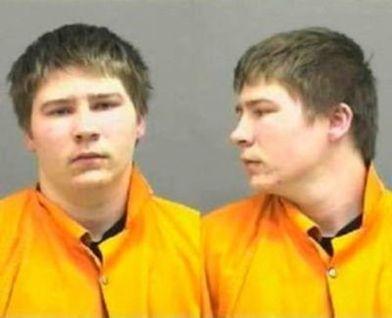A federal appeals court on Thursday affirmed a decision to overturn the murder conviction of Brendan Dassey, a
Wisconsin man serving a life sentence whose case was chronicled in the popular Netflix television documentary “Making a Murderer.”
A three-judge panel of the Seventh Circuit Court of Appeals in Chicago ruled 2-1 to uphold a federal judge’s ruling last year that overturned Dassey’s conviction for a 2005 murder.
Magistrate Judge William Duffin had ruled in August that the conviction was based on a coerced confession that Dassey, now 27, gave as a 16-year-old with a learning disability. Duffin ordered Dassey freed in November, but his release was halted while Wisconsin authorities appealed the decision.
“THIS JUST IN,” Dassey’s attorney Steven Drizin tweeted on Thursday. “7th Circuit AFFIRMS Judge Duffin in 2-1 decision. This round goes to Brendan Dassey 2-1.”
The judges’ three-sentence judgment ordered Dassey freed unless Wisconsin elected to retry him within 90 days or appealed the ruling.
Johnny Koremenos, a spokesman for Wisconsin Attorney General Brad Schimel, said his office was evaluating the decision.
“We anticipate seeking review by the entire 7th Circuit or the United States Supreme Court and hope that today’s erroneous decision will be reversed,” he said in an email.
Dassey and his uncle, Steven Avery, were convicted in separate trials of killing freelance photographer Teresa Halbach at Avery’s home and scrap yard. Her charred remains were found in an incineration barrel and a burn pit on Avery’s property, about 80 miles (130 km) north of Milwaukee.
A jury in 2007 found Dassey guilty of first-degree intentional homicide, second-degree sexual assault and mutilation of a corpse. Avery was convicted of first-degree intentional homicide and unlawful possession of a firearm as a felon. Both were sentenced to life in prison.
The case was the subject of the 10-part documentary “Making a Murderer,” which questioned the handling of the investigation and the motives of Manitowoc County law enforcement officials.
The documentary recounted how Avery was convicted of an earlier, unrelated rape and sent to prison in 1985, serving 18 years before DNA evidence exonerated him and he was released.
He filed a $36 million federal lawsuit against the county, its former sheriff and district attorney in 2004. A year later, he and Dassey were accused of killing Halbach.
The Emmy-winning documentary suggested that authorities planted evidence against both defendants, a claim rejected by the current sheriff.
















